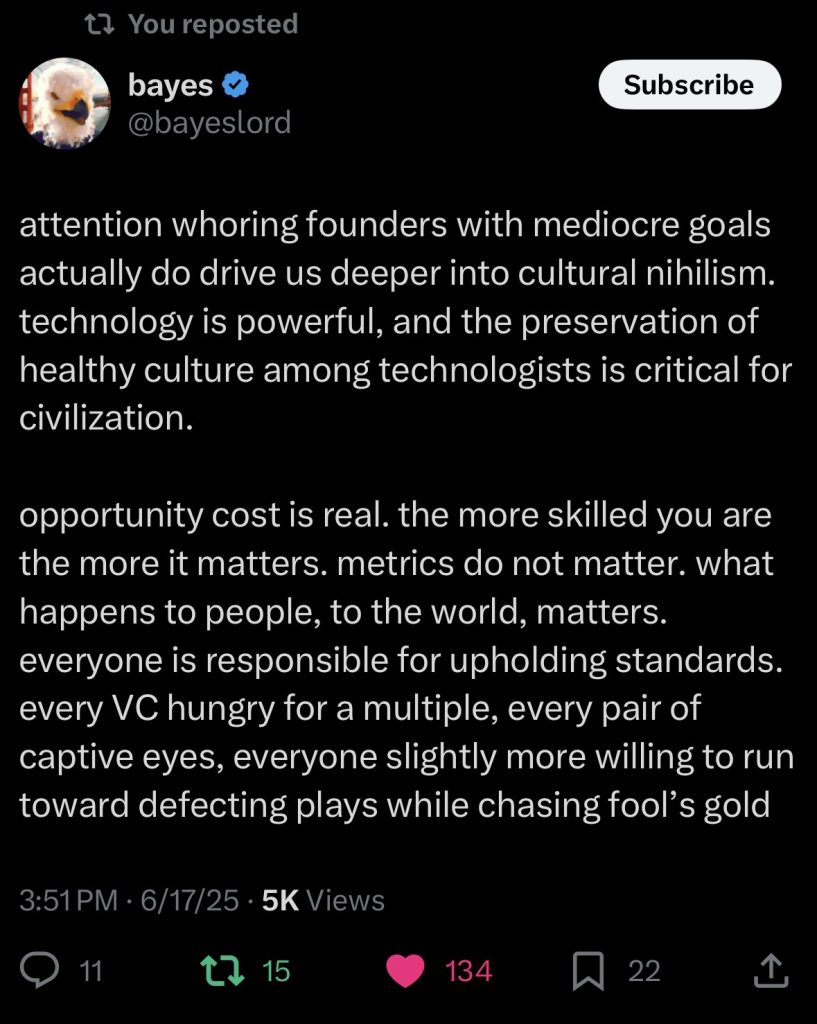Attention is a currency with an exchange rate so volatile even a hardened ForEx trader would find it exhausting.
There is a new set of younger founders who are taking the attention trade to new heights. Rate baiting marketing is to the 2020s what growth hacking was to the 2010s. Now a startup like Cluely could be the new the new Dollar Shave Club with its viral success. Or could go the way of Clinkle.
Because who cares how you widen the top of your funnel as long as you are getting enough such that down in the trenches of conversion you have enough leads.
Surviving as a startup isn’t easy and you should grab the opportunities you are given. Yet I imagine you end up with the Glen Gary Glen Ross “the leads are weak” kind of situation, but does management care? Probably not.
And so we continue to coarsen our shared business environment but who cares right? Always be closing.
A lot of people do care though. I care quite a bit. Because it is a trade you are making. Something may work but are you sure you can live with the trade? I am with my anon friend here.
attention whoring founders with mediocre goals actually do drive us deeper into cultural nihilism. technology is powerful, and the preservation of healthy culture among technologists is critical for civilization.
opportunity cost is real. the more skilled you are the more it matters. metrics do not matter. what happens to people, to the world, matters. everyone is responsible for upholding standards. every VC hungry for a multiple, every pair of captive eyes, everyone slightly more willing to run toward defecting plays while chasing fool’s gold- Bayeslord

I’ll never begrudge a market. I believe we should have more markets. Go ahead and make concrete your implicit assumptions about the world and humanity. Own it. Show the revealed preference.
But it’s worth knowing how we do that price discovery on these attention trades. In this world we have grounding validity for all kinds of disappointing facts. The world is made up of many noble lies. We all decide how we want to make our trade with reality.
And as to attention whores? Well, the oldest profession surely knows a lot about the soul of man. I’m sure we all share a desire for a greater spirit of man and aspire towards something greater. But sex sells.

